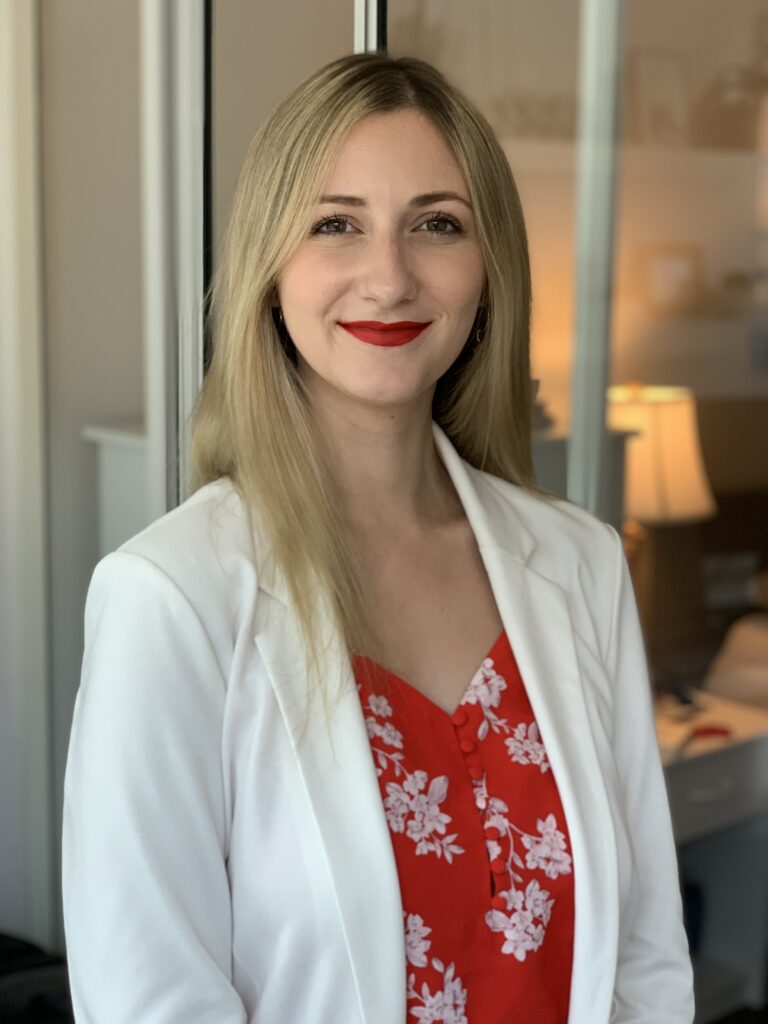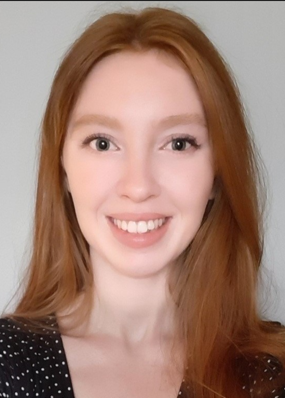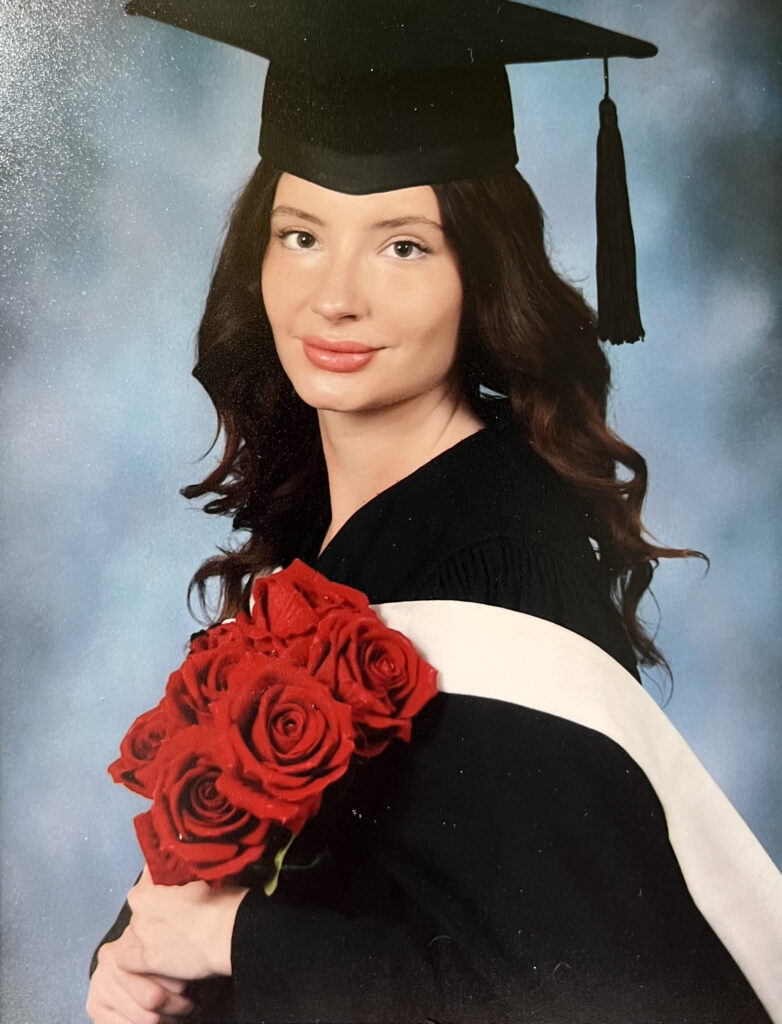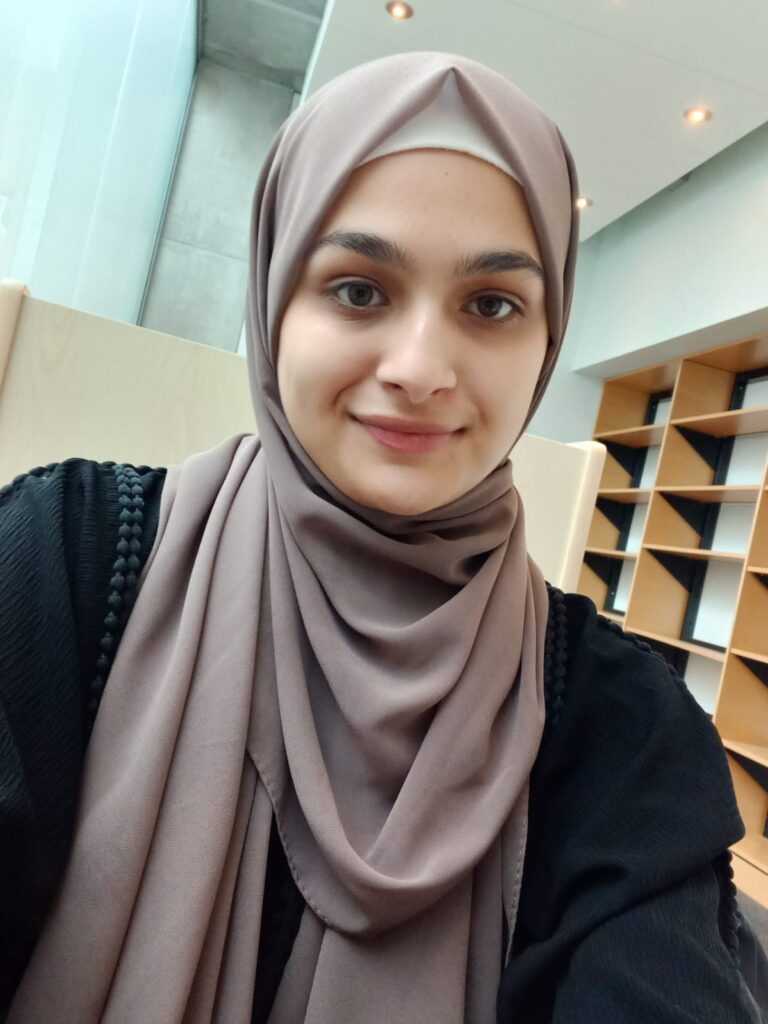Lyndsay Woolridge, Graduate Student – PhD 5

Lyndsay is in her final year of the Direct Entry PhD program in Forensic Psychology, working under the supervision of Dr. Amy Leach. She completed her master’s degree in Linguistics at York University and received her BA (Hons) in Linguistics and Psychology from Queen’s University. Her primary research area focuses on deception detection in non-native English speakers and the implications of observer biases when making veracity judgments in legal settings. As a secondary focus, Lyndsay has also conducted several studies related to deception and attributions of arousal. Currently, she is investigating the impact of interpreter use on deception detection during courtroom examinations.
Click here to download Lyndsay’s CV
Lyndsay’s ResearchGate profile
–––
Katrina-Ray Villeneuve, Gradutate Student – PhD 2

Katrina is a third-year Forensic Psychology PhD candidate working under the supervision of Dr. Amy Leach in The Lie Lab. For her Doctoral thesis, she is examining the prevalence and impact of apologies within the criminal justice system. Katrina’s other research interests include the use of interpreters in police interviews.
Katrina’s MSc research titled “Short on Time: The Effect of Exposure Length on Deception Detection Accuracy” examined cognitive processes underlying decision-making (ie., how exposure time affects deception detection).
Click here to download Katrina’s CV
–––
Claudia McArthur, Graduate Student – MSc 2

Claudia is a second-year MSc student in the Forensic Psychology program. Under the supervision of Dr. Amy Leach, her thesis will examine the roles of language proficiency and interpreter use in shaping observers’ lie detection judgements of non-native speakers. Claudia’s other research interests include dyadic and triadic rapport development in investigative interviews.
Claudia previously completed her Bachelor of Arts (Hons) in Forensic Psychology at Ontario Tech University. Her honours thesis research examined psychological predictors of academic stress among undergraduate students.
–––
Brooklyn Ferguson, Honours Student

Brooklyn is a 4th year student at Ontario Tech University enrolled in the BA Forensic Psychology program, with a minor in Criminology and Justice. She joined the Lie Lab as a research assistant at the beginning of 2024. Brooklyn is currently writing an honour’s thesis under the supervision of Dr. Amy-May Leach.
Her research is focused on police perceptions of the quality and accuracy of interpretations in suspect interviews. After the completion of her undergraduate degree, Brooklyn plans to pursue graduate studies in Forensic Psychology.
Brooklyn’s LinkedIn profile
–––
Aisha Hussain, Project Assistant

Aisha is a 2nd year student at Ontario Tech University enrolled in the Bachelor of Health Science (Honours), Medical Laboratory Science program. She joined The Lie Lab as a Project Assistant in Spring 2024.
After the completion of her undergraduate studies, Aisha plans to write the national licensing exam to become a registered MLT and pursue graduate studies in Laboratory Medicine.
